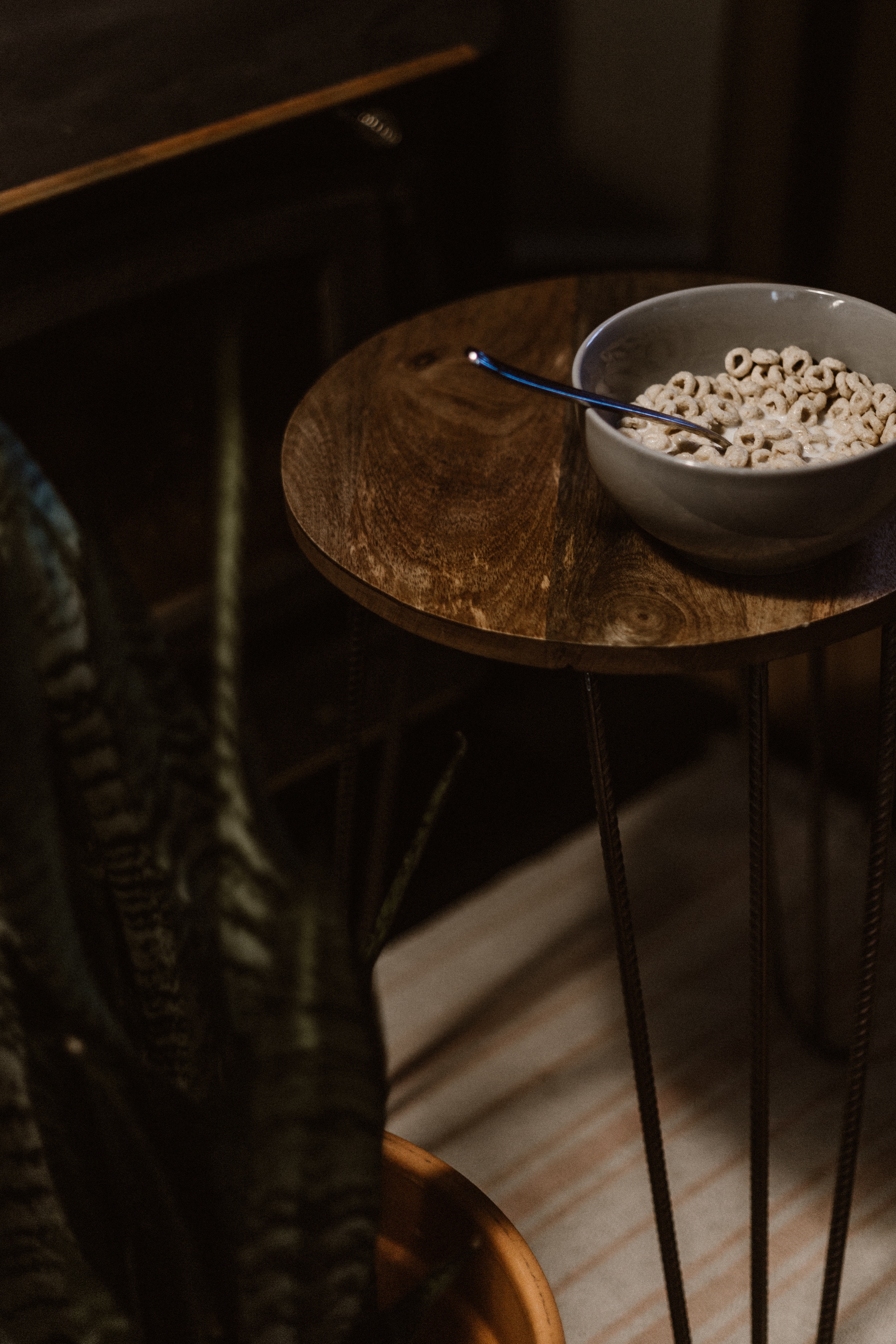Have you ever eaten the last piece of dried-out cake sitting on your kitchen counter, or maybe the bowl of jelly beans because they were on your desk? Maybe sweets are your weakness, but have you ever eaten all the French fries on your plate just because they were there? We all have, but why? We do this for two reasons: cues around us and the mindless margin.
Cues
Let’s say you sit down for dinner and there are mashed potatoes, green beans, and pork chops on the table. You make your first plate and you feel content, but you see that there are still mashed potatoes left, so you grab seconds and take what’s left. Your family finishes off the pork chops and green beans and get up from the table. You’re not exactly feeling full but since everyone has finished the food on the table and have excused themselves, you don’t go grab something out of the cabinet, you simply stop eating. Your family getting up and the food being gone are the visual cues that make you not want to eat more.
Let’s even take a bowl of cereal, for example. If anyone fixes a bowl of cereal, typically no one is leaving a few milk-soaked Cheerios in the bowl. We eat them all because they’re there and it’s a visual cue for us to keep eating. Most of us don’t think anything of this. There’s no magic number of Cheerios that makes us so full we feel like we’re going to pop and there’s no magic number that makes us feel that we have under-eaten. Since there is no magic number, we fill up our bowl of whatever size we choose and go for it until we’re done. What we fail to realize is that when we’re in that zone where we’re eating a few more Cheerios or a few more jelly beans, we don’t feel the difference between 700 and 900 calories. This zone is called the mindless margin.
The Mindless Margin
Let’s face it, we don’t wake up one day 20 pounds heavier than we were when we went to bed. When we’re in the mindless margin zone, we can either under-eat or overeat without being aware of it. Doing this can creep up on us over time. Did you know that 3,500 calories equal a pound? It doesn’t matter if you eat those calories all together or 500 extra calories a day until you reach 3,500. You will gain a pound either way. This is problematic because if we eat 1,000 calories in one day, we feel that we haven’t eaten enough. We may feel weak, tired, and irritable. On the flip side, if we eat 4,000 calories in one day, we will feel that, too. We may feel slower, heavier, and won’t feel like doing much. However, if we only under-eat or overeat by 300 calories, we try to put on our favorite pair of jeans and we wonder why we can’t fit in them this season. The calorie range where we are unaware of what we’re doing is called the mindless margin. Here’s something to think about… just ten extra calories a day is enough to make you gain ten pounds in one year. Luckily, the same thing happens if we eat ten calories less per day.
Overcoming the Mindless Margin
As Americans, we typically stop eating when we’re full. Most other cultures stop eating when they are no longer hungry. So, the next time you sit down to eat – and by the way, you should always be sitting down to eat – try eating until you are no longer hungry. There is a significant gap in the number of calories you’ll eat. Start with cutting back by 20% of what you may think you’d eat. There are many studies that show that 20% goes unnoticed but 30% makes people feel deprived. Another great thing to consider is to add some fiber-filled carbohydrates or vegetables to substitute the 20%. Fiber always makes you feel fuller and more satisfied. Go on and give it a try – you may be surprised how easy it is to maintain or even lose weight by being aware of the mindless margin!
Today’s author: Casey Clark is an affiliate coach with Wholistic Woman and manages a health and wellness practice, Heaven On Earth, which focuses on self-care. Having been a student and working, both full-time, Casey has a deep understanding for the importance of self-care and is committed to helping those who lead busy lives, especially young professionals, accomplish prioritizing self-care so that they can live a holistically balanced, well and fulfilled life. She uses her own experiences as a motivator to help her clients achieve lasting, self-compassionate change that is aligned with their values. Find out more about Casey at her website: www.aheavenlyyou.com

